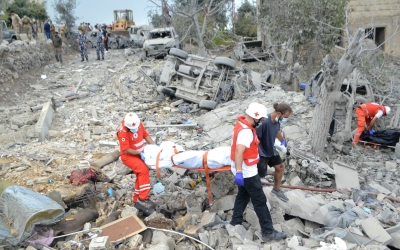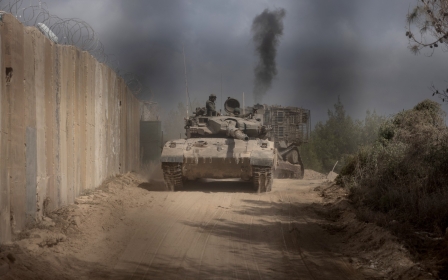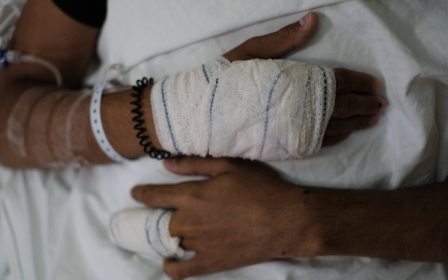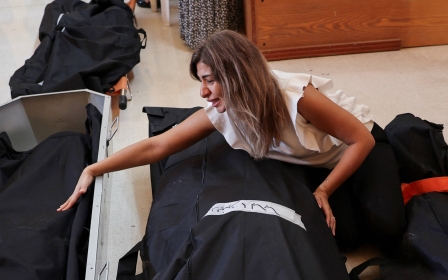Israeli air strike kills mayor of Nabatieh during official meeting
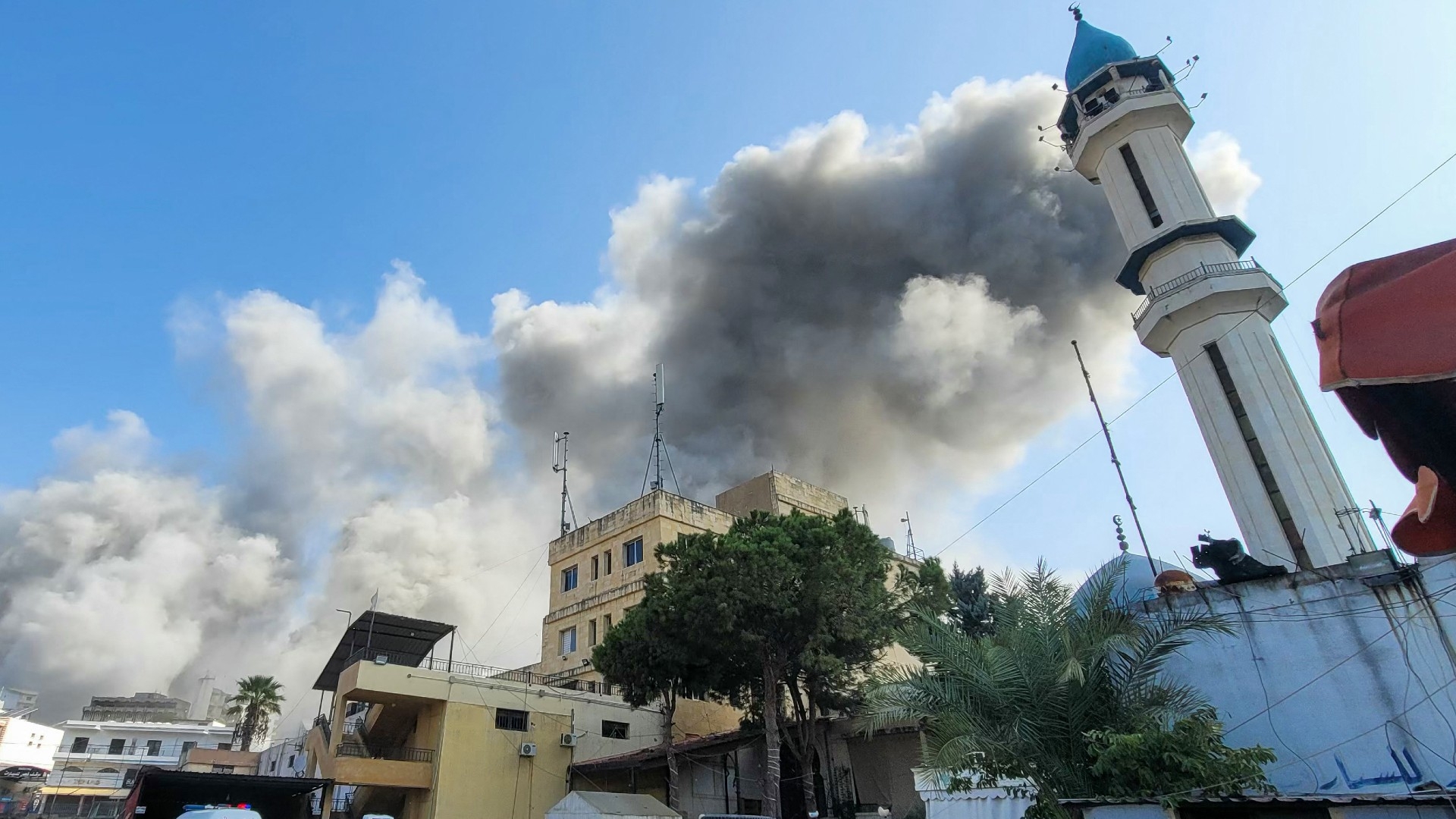
An Israeli air strike on Nabatieh in southern Lebanon has killed the city's mayor and at least five other people, wounding several more.
Ahmad Kheil, Nabatieh's mayor, was conducting a daily crisis management meeting in the city's municipal building when it was bombed on Wednesday morning.
"The mayor of Nabatieh, among others… was martyred. It’s a massacre,” Nabatieh governor Howaida Turk told AFP.
The governor reported 11 strikes on the city and its surroundings. Emergency workers in the area said Israeli bombardment also destroyed a medical facility near the municipal building, killing two doctors.
Lebanese Prime Minister Najib Mikati said Israel deliberately targeted the municipal meeting.
New MEE newsletter: Jerusalem Dispatch
Sign up to get the latest insights and analysis on Israel-Palestine, alongside Turkey Unpacked and other MEE newsletters
Mikati said he "condemned the new Israeli aggression against civilians in the city of Nabatieh, which deliberately targeted a meeting of the municipal council that was discussing the city's services and relief situation".
Israel said the strikes on Nabatieh were aimed at "Hezbollah targets", including "military buildings, military headquarters and munitions warehouses" that it said were "placed near civilian buildings".
However, no evidence was provided to support the claim, which has been made in other attacks that have killed large numbers of civilians.
Just days ago, Israeli strikes destroyed the city's main market, wounding at least eight people, according to the Lebanese health ministry.
Unifil troops not leaving
At least one Israeli strike hit the southern suburbs of Beirut earlier on Wednesday. It marked the first attack on the Lebanese capital in several days.
The strike came just hours after the US Department of State expressed opposition to the nature of Israeli strikes on Beirut.
"When it comes to the scope and nature of the bombing campaign that we saw in Beirut over the past few weeks, it's something that we made clear to the government of Israel we had concerns with and we were opposed to," State Department spokesperson Matthew Miller told reporters.
In addition to air strikes, Israel's military announced on Wednesday that its navy forces had cooperated with ground troops in southern Lebanon.
Meanwhile, Israel continues to face criticism over its recent attacks on the United Nations' peacekeeping mission in Lebanon, known as Unifil.
Austrian Foreign Minister Alexander Schallenberg said on Wednesday that EU countries contributing to Unifil have no intention of pulling back despite Israeli calls to do so. Sixteen EU countries currently contribute to the peacekeeping forces.
Since Israel's ground invasion into southern Lebanon on 1 October, Unifil positions have come under Israeli fire, wounding at least five peacekeepers.
Israeli forced expulsions of Lebanese people have now affected a quarter of the country, according to the UN refugee agency.
Israeli attacks on Lebanon have killed at least 2,350 people since October last year and wounded around 11,000 others, according to Lebanon's health ministry. Over 1.2 million people have been displaced.
Meanwhile, around 50 Israelis have been killed over the same period.
Middle East Eye delivers independent and unrivalled coverage and analysis of the Middle East, North Africa and beyond. To learn more about republishing this content and the associated fees, please fill out this form. More about MEE can be found here.


